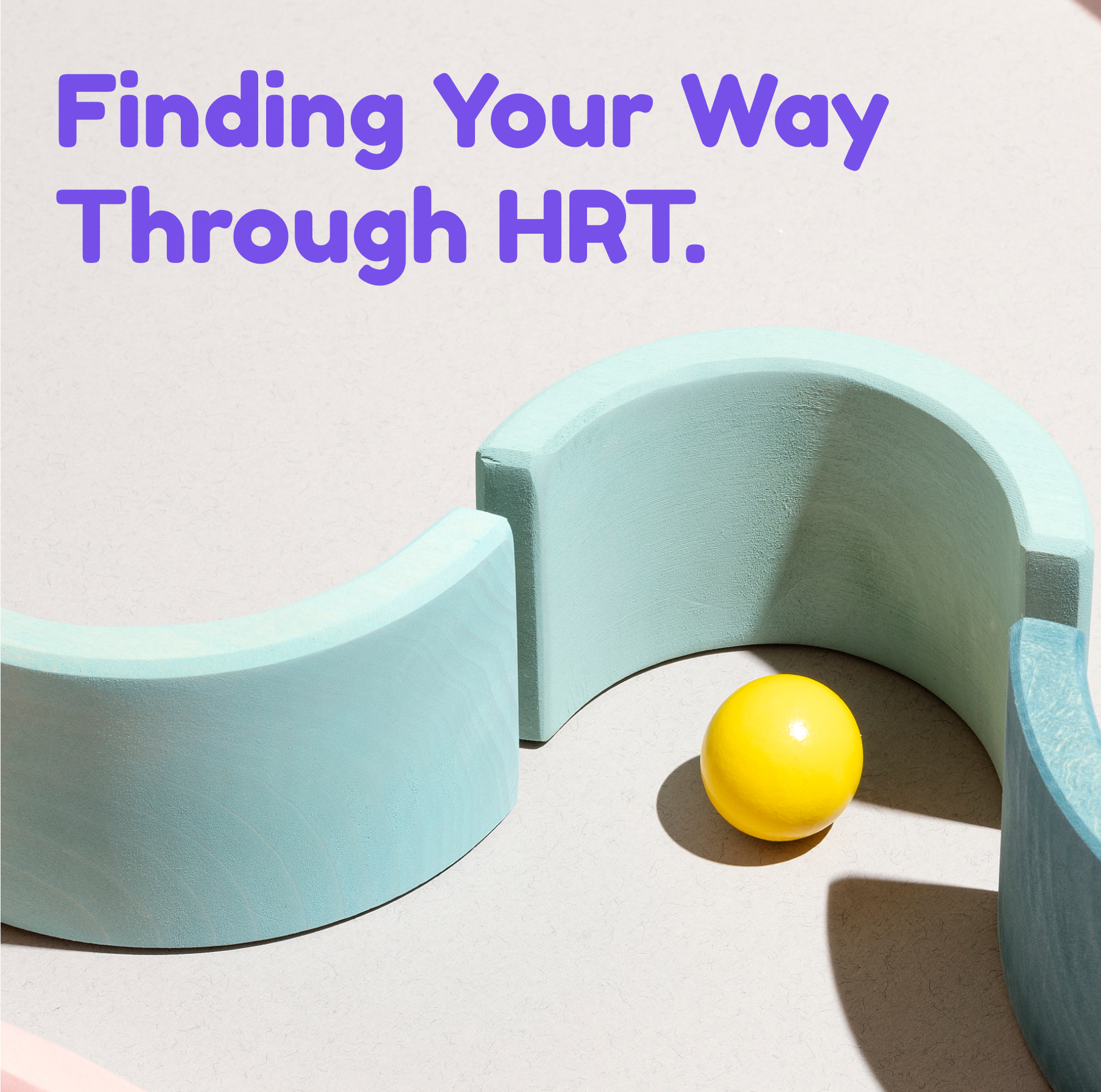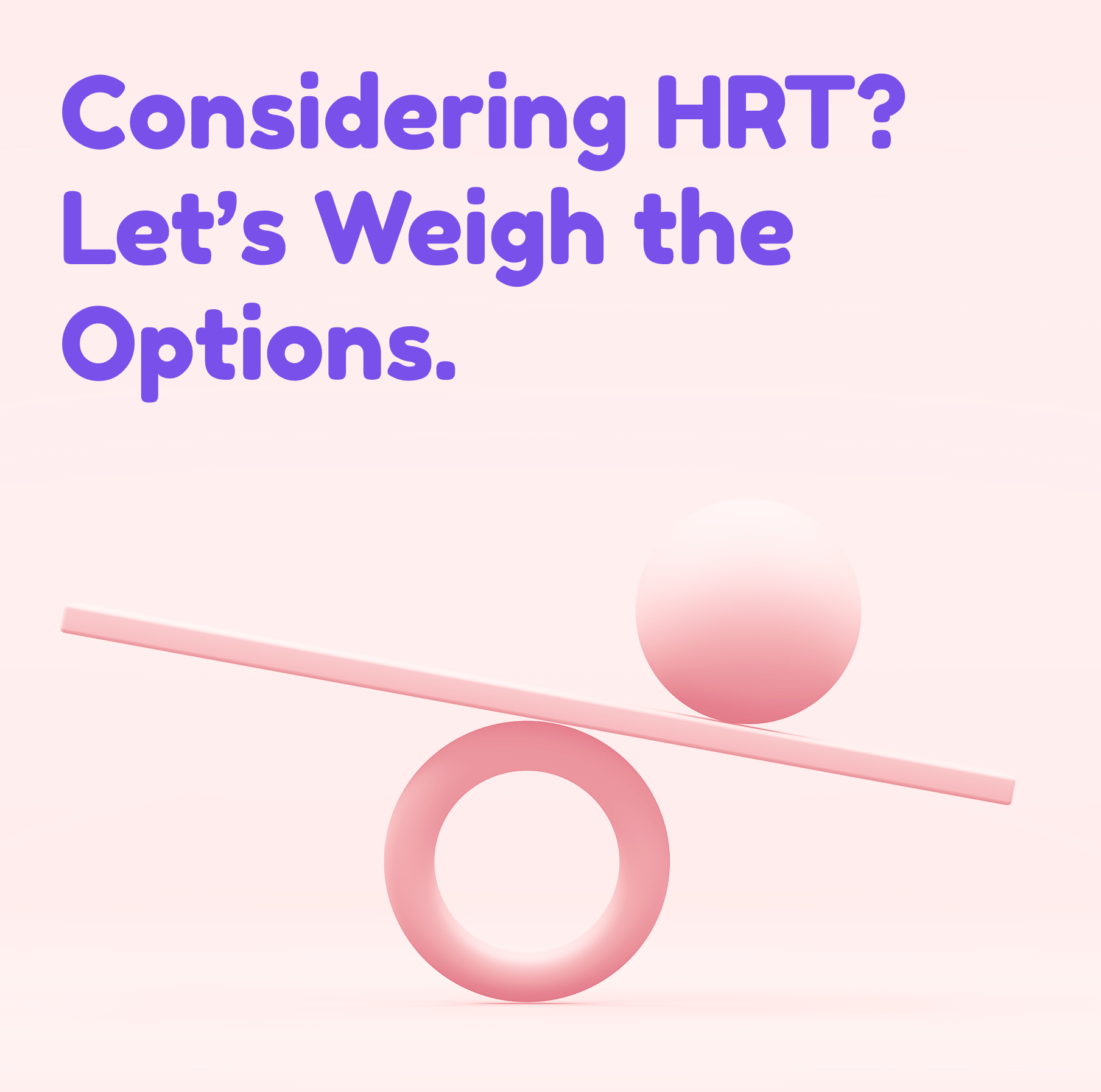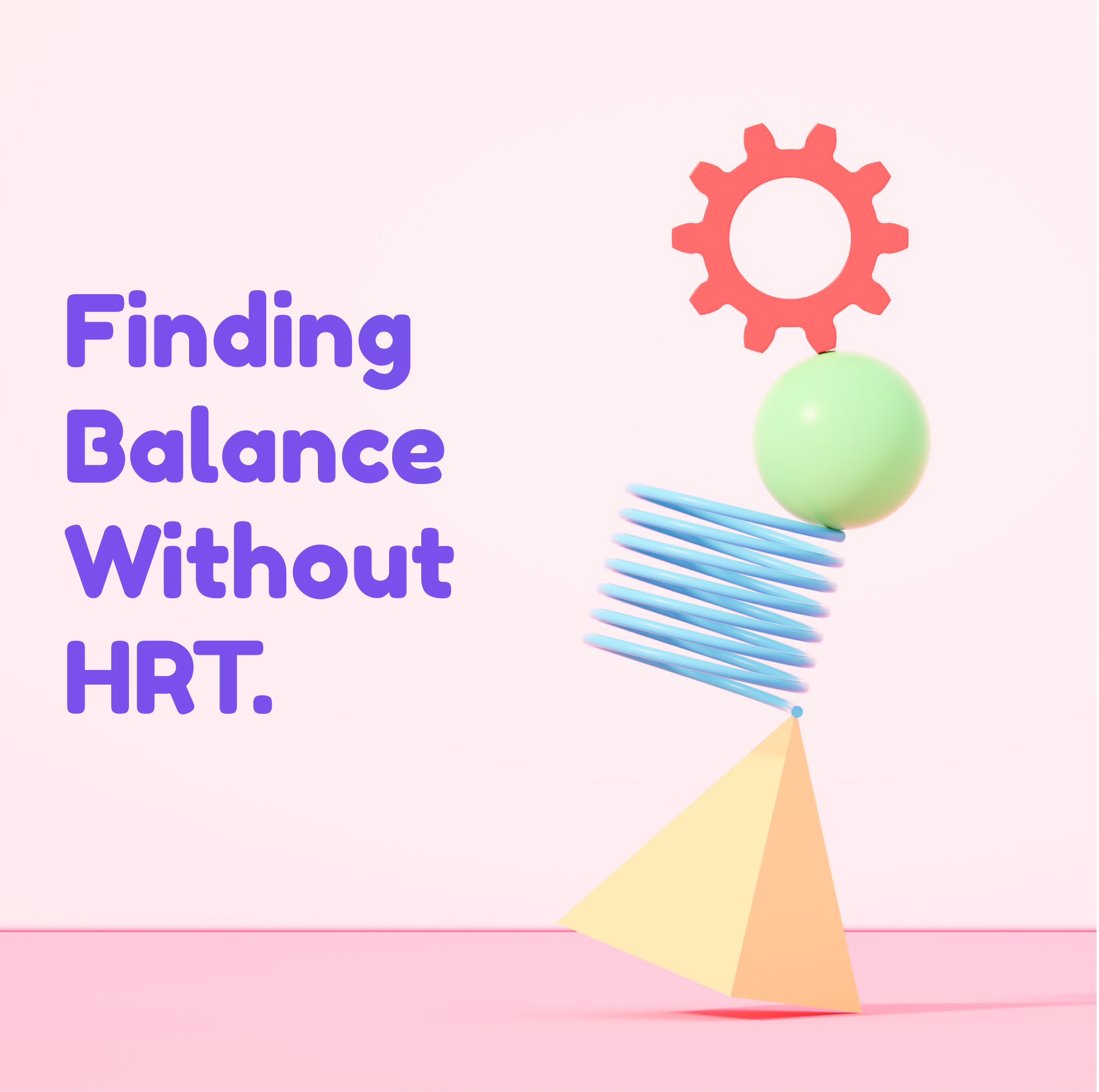
Navigating Menopause: The Benefits and Risks of HRT
For many women, the transition through menopause is a turning point filled with both challenges and opportunities. Whether you’re experiencing hot flashes, mood swings, or changes in sleep patterns, remember that menopause is a natural stage in life. In this guide, we’ll explore the ups and downs of menopause while shedding light on hormone replacement therapy (HRT) – its benefits, potential risks, and practical tips to improve your quality of life.
Got questions? Ask Noor.
What Is Menopause?
Menopause marks the end of menstrual periods and the reproductive phase, typically occurring between the ages of 45 and 55. It isn’t a disease but a natural biological process. Many women experience a range of symptoms during the transition, such as:
- Hot flashes and night sweats
- Mood changes and occasional anxiety
- Sleep disturbances and fatigue
- Vaginal dryness and discomfort during intimacy
- Changes in memory and concentration (often described as “brain fog”)
Each woman’s experience with menopause is unique, and understanding your body’s signals is the first step toward managing this phase effectively.
Understanding HRT: Hormone Replacement Therapy
Hormone replacement therapy (HRT) is a treatment option designed to alleviate many of the discomforts associated with menopause. As the ovaries stop producing essential hormones like estrogen and progesterone, HRT helps replace these missing hormones. It comes in various forms, including pills, skin patches, gels, creams, or vaginal rings.
Choosing HRT is a personal decision that should involve a detailed discussion with your healthcare provider. Factors such as your age, health history, family medical background, and specific menopause symptoms will all play a role in determining whether HRT is right for you.
Benefits of HRT
Many women find that HRT offers significant relief from common menopause symptoms. Some of the key benefits include:
- Relief from Vasomotor Symptoms: HRT is highly effective in reducing hot flashes and night sweats, which can improve sleep quality and overall comfort.
- Improved Bone Health: As estrogen levels drop, the risk of osteoporosis increases. HRT helps maintain bone density and reduces the risk of fractures.
- Mood and Cognitive Support: Balancing hormone levels may help ease mood swings and alleviate the “brain fog” that many experience during menopause.
- Enhanced Sexual Health: By addressing vaginal dryness and thinning, HRT can improve comfort during intimacy and reduce issues like urinary incontinence.
- Overall Quality of Life: Many women report feeling more like themselves again—more energetic and positive—once their symptoms are managed.
Starting HRT earlier in the menopause transition can often maximize these benefits, sometimes even reducing the risk of heart disease and maintaining muscle strength.
Risks and Side Effects of HRT
While the benefits of HRT can be significant, it’s equally important to understand the potential risks. The benefits and risks of hrt depend on several factors, including the type of therapy, dosage, duration, and individual health considerations. Some concerns include:
- Breast Cancer: Studies have shown that combined HRT (estrogen plus progestogen) may slightly increase the risk of breast cancer, especially with prolonged use. However, for many women, this risk is relatively low.
- Cardiovascular Issues: Beginning HRT closer to the onset of menopause can be beneficial for heart health. Conversely, starting later might be associated with a higher risk of heart disease and blood clots.
- Risk of Blood Clots: Oral HRT has been linked to an increased risk of venous thromboembolism, particularly in women with additional risk factors (e.g., obesity or smoking). Transdermal options such as patches or gels may reduce this risk.
- Other Side Effects: Some women might experience mild side effects like bloating, nausea, or spotting. These issues often resolve over time or with adjustments to the treatment plan.
Balancing these risks with the benefits is essential. For many healthy women under 60—or those within 10 years of menopause onset—the improvements in quality of life may well outweigh the risks.
Practical Tips for Managing Menopause
Whether you choose HRT or opt for lifestyle modifications, here are some actionable tips to help ease the menopause transition:
- Dress in Layers: Choose light, breathable clothing that can easily be removed during hot flashes.
- Adopt a Healthy Diet: Focus on fruits, vegetables, lean proteins, and whole grains to support heart health and bone strength.
- Stay Active: Regular physical activity, especially weight-bearing exercises, can boost bone density and improve mood.
Practice Relaxation Techniques: Incorporate mindfulness, deep breathing, yoga, or even a leisurely walk to reduce stress. - Keep a Symptom Diary: Tracking your symptoms can help you identify triggers and assist your healthcare provider in tailoring an effective treatment plan.
Even small lifestyle changes can have a big impact on how you feel during this transition.
Making an Informed Decision
Choosing whether to use HRT is highly individual. Consider these factors when discussing your options with your doctor:
- Personal Health History: If you have conditions like urinary incontinence or a family history of breast cancer, these might influence the type or dosage of HRT recommended.
- Symptom Severity: Evaluate how disruptive your symptoms are. For some, the relief provided by HRT makes it an attractive option despite the potential risks.
- Treatment Duration: Short-term HRT is often recommended for symptom relief, as prolonged use may increase certain risks. Regular follow-ups are key.
- Alternative Therapies: If HRT isn’t the right fit, non-hormonal treatments or lifestyle modifications may also offer relief.
Reputable organizations, such as the North American Menopause Society, provide guidelines to help ensure that the benefits of HRT are maximized while minimizing risk factors.
A Positive Perspective on Menopause
Menopause is not just about symptoms and challenges—it’s also a time of transformation and renewal. Rather than viewing it as an end, consider it the beginning of a new chapter where you can focus on self-care and redefine your wellness routine. With modern advances in HRT and a better understanding of its benefits and risks, you’re empowered to make decisions that enhance your quality of life.
Every woman’s journey through menopause is unique. While some may experience severe symptoms, many find that with the right support—whether medical or through lifestyle adjustments—the transition can be managed gracefully. Embrace this time as an opportunity for growth, self-discovery, and renewed energy.
Conclusion
Menopause is a natural, inevitable transition that opens the door to new opportunities for self-care and health empowerment. Hormone replacement therapy can be a powerful tool for managing symptoms, but it’s important to weigh its benefits against potential risks carefully. By staying informed, adopting a healthy lifestyle, and engaging in open conversations with healthcare professionals, you can navigate this stage with confidence and grace.
Remember, your menopause journey is uniquely yours. Embrace the changes, seek support when needed, and celebrate the strength that comes with each new chapter in your life.



